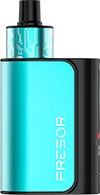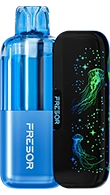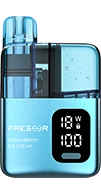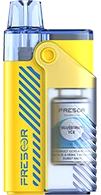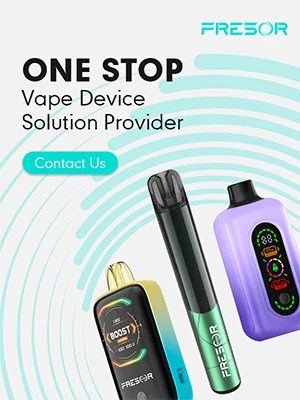How Vaping Laws in Brazil Are Changing in 2024

6 August 2024

In 2024, you will see significant changes to vaping laws in Brazil, a development that holds substantial implications for vape manufacturers and retailers. Understanding the new regulations and their impact is crucial for industry stakeholders as the country continues to grapple with health concerns and the increasing popularity of electronic smoking devices.
This article will provide a comprehensive overview of the updated legislation, delve into the reasoning behind the regulatory shifts, and examine how these changes could shape the future of the vape market in Brazil.
Why Are Brazil's Vaping Laws So Strict?
Brazil's vaping laws are strict to protect public health. Young people are particularly vulnerable to vaping products. Health impacts associated with vaping are concerning. Vaping can lead to chronic non-communicable diseases. The government prioritizes reducing these health risks.
Brazil's vaping restrictions stem from extensive research. Anvisa bases its regulations on scientific studies. These studies show how nicotine is harmful. They also show the potential harm from unknown substances in e-cigarettes. You need to be careful since we don't have long-term data.
The public consultation process reinforces these strict laws. The Brazilian government listens to health experts. They also consider public opinion on vaping products. This inclusive process promotes well-informed regulations.
Strict enforcement is crucial. Brazilian authorities aim to reduce illegal vaping product sales. Increased border controls and market inspections are essential. These steps reduce the illicit market.
Anvisa also emphasizes education. Telling people, especially the youth, is crucial. Campaigns highlight the dangers of vaping. They aim to discourage initiation and promote healthier choices.
Can You Buy Vapes in Brazil?
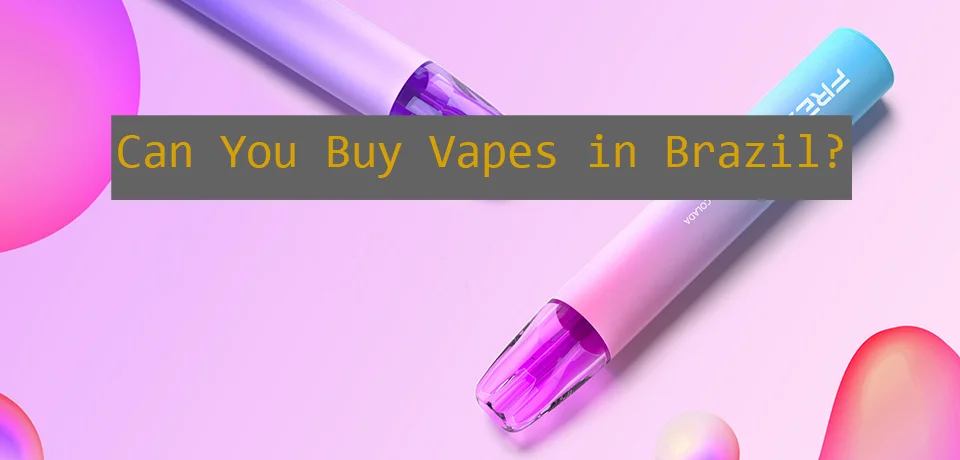
As Brazil moves to implement new vaping regulations in 2024, many questions arise regarding the legality and availability of electronic cigarettes in the country. Below we will provide clear guidance on the purchasing rules for electronic cigarettes in Brazil, outlining the implications for different stakeholders.
For Retailers & Distributors
Retailers and distributors cannot legally sell electronic cigarettes in Brazil. Anvisa banned the production, import, and illegal sale of vape devices. This ban includes all electronic smoking devices and accessories related to them. Retailers caught selling such products face penalties and seizures. Despite the ban, people keep selling vapes illegally because there's high demand and not enough enforcement.
The Brazilian Tobacco Industry Association supports strict regulations. They want to cut down on tobacco use and make sure products are safe. However, they argue for a more regulated approach. They think it will cut down on the illegal market and keep consumers safe. Enforcing rules strictly and providing clear guidelines can help reach these goals.
For Consumers
Consumers in Brazil cannot legally purchase vapes. Anvisa's regulations prohibit any form of vape sales, including online purchases. The only products allowed are those brought in personal luggage in small, clearly regulated quantities. These rules are enforced to curb the proliferation of vapes among the youth and to address health concerns linked to electronic smoking.
Consumers often turn to the black market to satisfy their demand for vapes. As a result, they face risks related to unregulated and potentially harmful products. Authorities continue to stress the health risks associated with vape use.
The Brazilian Tobacco Industry Association emphasizes the need to reduce tobacco consumption overall. They advocate for better education and stricter rules to keep people healthy. As laws evolve, the focus remains on balancing enforcement with consumer safety.
Anvisa plans to step up enforcement actions in the next few years. They also intend to carry out educational campaigns. This approach aims to inform the public about the dangers of vaping and promote healthier alternatives.
Electronic Smoking Devices Law in Brazil
The Brazilian Health Surveillance Agency (Anvisa) strictly regulates electronic smoking devices. The law prohibits importing, selling, and advertising e-cigarettes. These measures aim to mitigate public health risks. They stem from comprehensive studies and health impact analyses.
The World Health Organization supports Anvisa’s stance. They highlight the health risks posed by e-cigarettes. Nicotine in these devices causes addiction and other health issues. The lack of long-term studies fuels precautionary policies.
Authorities recognize the need to adopt additional measures. They plan to increase enforcement actions. This includes stricter controls at borders and within the market. The goal is to curb illegal sales.
Anvisa also focuses on educational campaigns. The goal is to inform people about the dangers of e-cigarettes. They target youth and discourage initiation into smoking.
The 2024 regulatory changes will reinforce these measures. The overarching aim is to protect public health and reduce tobacco consumption. The future of vaping in Brazil remains strictly regulated.
Electronic Cigarettes Regulations in Brazil
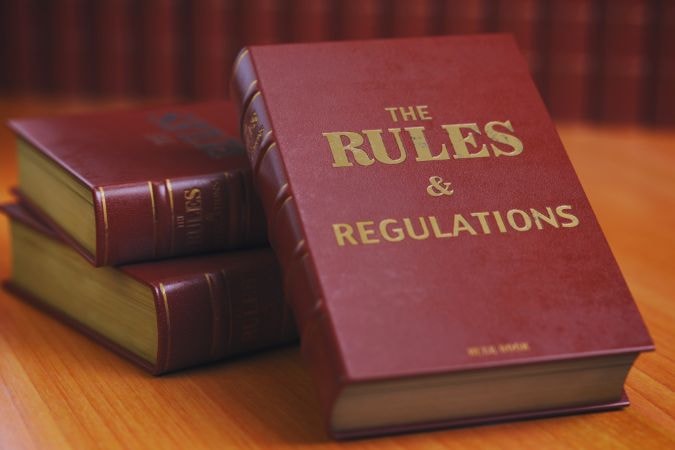
Electronic cigarettes are strictly regulated in Brazil. As of 2021, the manufacture, import, distribution, and sale of electronic smoking devices and related products are prohibited by the Brazilian Health Surveillance Agency (Anvisa). These regulations aim to protect public health by reducing tobacco consumption and addressing potential health risks associated with vaping.
Manufacturing Regulations
Brazil bans the manufacturing of electronic cigarettes. This regulation applies to both domestic and foreign companies. Anvisa enforces these rules strictly. Violators face substantial fines and legal action.
Authorities believe production control reduces market availability. This policy also discourages potential startups. The ban covers all components of e-cigarettes. E-liquid production is illegal too. Companies cannot produce any related accessories either.
Import and Export Requirements
Importing electronic cigarettes into Brazil is illegal. This covers every kind of e-cigarette and vaping products. Anvisa monitors the borders to prevent illegal imports. Customs officials inspect shipments rigorously. They confiscate any unauthorized goods.
Authorities encourage reporting of illegal imports. Brazil also bans exporting these products. These measures prevent the global spread of harmful products. The focus remains on strict border control.
Distribution and Retail Laws
Brazil forbids the distribution and retail of e-cigarettes. No retailers can legally sell these products. The ban extends to online sales. Platforms found selling are prosecuted. Authorities conduct regular market inspections. They remove illegal products immediately.
Wholesalers and distributors face heavy penalties if caught. Anvisa collaborates with the police to enforce these laws.
Advertising and Marketing Rules
Advertising vapes is strictly prohibited in Brazil. This ban includes all media platforms and online stores. Companies cannot promote these products publicly. Violators face significant penalties and sanctions. Anvisa monitors advertisements closely.
This rule aims to protect vulnerable groups. Authorities believe that marketing efforts can significantly impact young people's choices. Reducing promotion helps decrease consumption.
Compliance and Enforcement
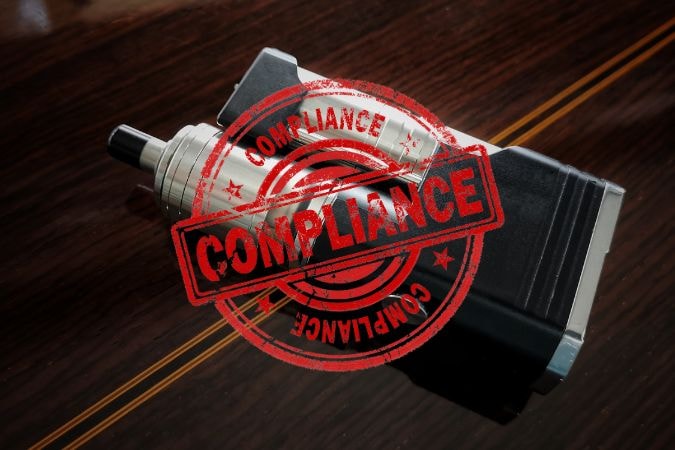
Penalties for non-compliance with Brazil's e-cigarette regulations are stringent. Companies and individuals found violating these laws face substantial fines, potential imprisonment, and confiscation of unauthorized products. Anvisa enforces a strict policy to guarantee compliance with the regulations.
The severity of penalties acts as a deterrent against illegal manufacturing, importation, distribution, and advertising of e-cigarettes. Violators can also face legal action and may be required to pay restitution. Continuous monitoring and robust legal frameworks support these enforcement measures.
Inspections and Regulatory Audits
Regular inspections and regulatory audits enforce compliance. Anvisa works with other government agencies to conduct frequent market surveillance activities. They perform random inspections at borders, warehouses, retail outlets, and even online platforms.
Audits prevent any unauthorized e-cigarette products from entering the market. Findings from these inspections are documented, and any irregularities are promptly addressed. This rigorous approach helps maintain control over e-cigarette proliferation.
Compliance Strategies for Businesses
Businesses must adopt effective compliance strategies to adhere to Brazil's e-cigarette regulations. This involves staying updated with legal requirements and participating in Anvisa’s educational programs.
Companies should implement internal compliance checks and train staff about legal obligations. Engaging with legal consultants for advice on regulatory updates can also prevent inadvertent violations. Establishing a transparent communication channel with regulatory bodies ensures businesses stay compliant and mitigate legal risks.
Comparison with International Vaping Laws
Brazil maintains some of the strictest vaping laws globally. While the FDA regulates vaping in the United States. American laws permit vaping products but mandate strict rules for disclosing ingredients and regulating marketing.
The Tobacco Products Directive governs the regulation of e-cigarettes throughout Europe. It sets standards for nicotine limits and packaging requirements. Additionally, individual EU nations have the authority to impose stricter regulations.
Japan bans the use of liquid nicotine in e-cigarettes but permits products without nicotine and heated tobacco products. In 2019, India implemented an extensive ban on e-cigarettes. This legislation covers the manufacturing, sale, and advertising of these products.
These comparisons highlight diverse approaches worldwide. While some countries like Brazil employ full bans, others opt for stringent regulations or limited allowances. Each approach reflects national public health priorities and regulatory philosophies.
FAQs
1. Are there any legal consequences for possessing e-cigarettes in Brazil?
Yes, possessing e-cigarettes in Brazil can lead to legal consequences such as fines, product confiscation, and potential legal action.
2. Can I bring e-cigarettes into Brazil for personal use?
Importing e-cigarettes into Brazil, regardless of whether it is for personal usage, is prohibited by law. Customs officials are vigilant in preventing the entry of such products and will confiscate any unauthorized items.
3. What role does Anvisa play in regulating e-cigarettes in Brazil?
Anvisa oversees every facet of e-cigarette regulation in Brazil, encompassing production, import, distribution, and advertisement. They perform inspections, implement regulations, and work alongside other organizations to ensure adherence to laws and safeguard public health.
4. Can I travel with e-cigarettes to Brazil?
It is not recommended to travel with e-cigarettes to Brazil, as they are prohibited from entering the country. It is best to check with local authorities for any updates or changes in regulations before traveling.
Bottom Line
As Brazil strengthens its stance against e-cigarettes with stringent laws set to take effect in 2024, businesses and individuals must stay informed and compliant. The comprehensive regulatory framework, spearheaded by Anvisa, underscores the nation's commitment to safeguarding public health, particularly protecting younger populations from the potential harms of vaping. These measures reflect broader international trends where countries adopt varying levels of control to address the risks associated with e-cigarettes.
Featured Articles
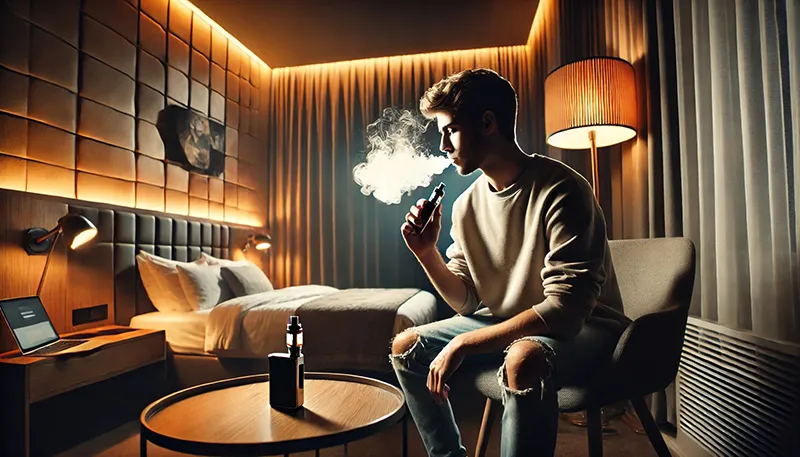
Can You Vape in a Hotel Room? A Guide for Travelers, Vapers, and Hoteliers
2024-09-19

Vape Legal and Regulatory Weekly Report - September 14, 2024
2024-09-14
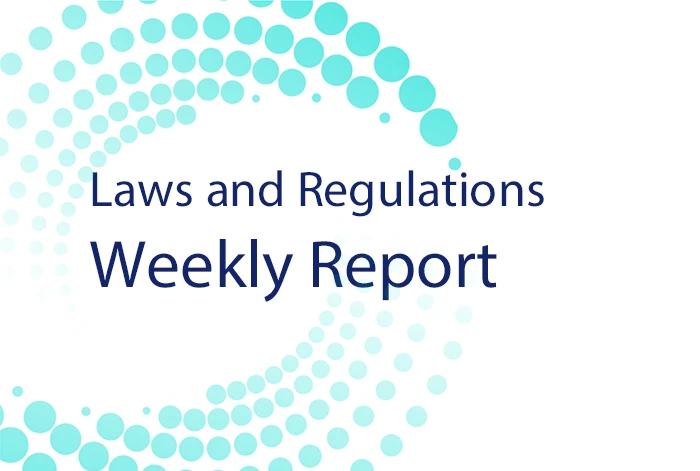
Vape Legal and Regulatory Weekly Report - September 9, 2024
2024-09-09

Vape Legal and Regulatory Weekly Report - September 2, 2024
2024-09-02
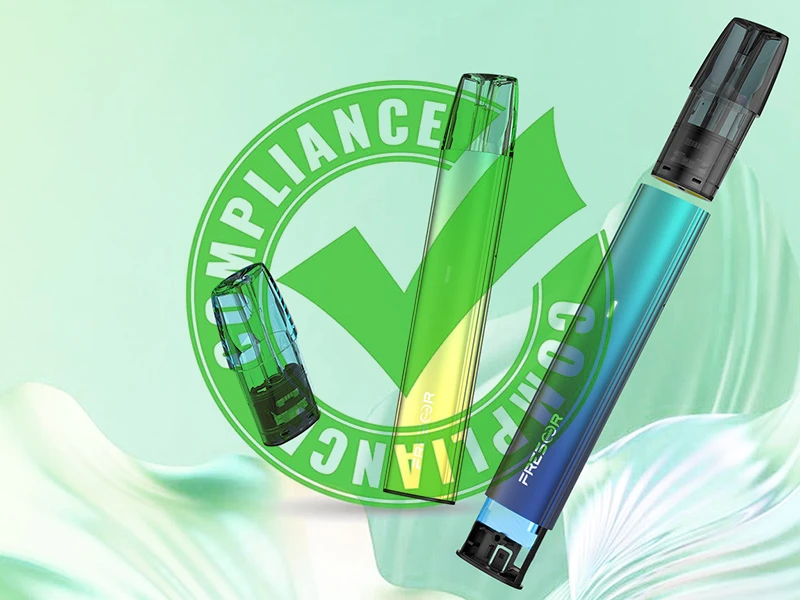
Vaping Laws in Germany: An Update on What You Need to Know
2024-08-12

